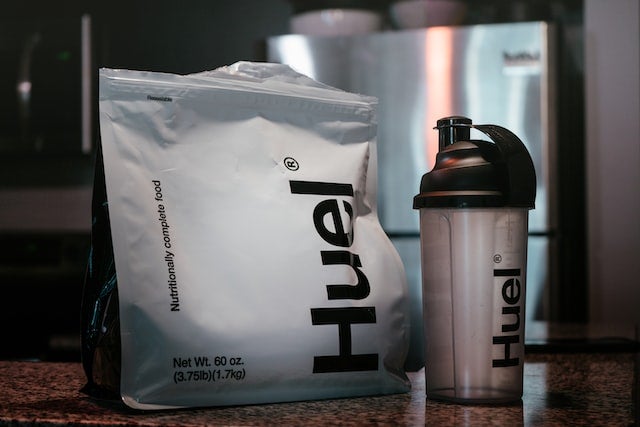
When it comes to the cost-of-living crisis, newspaper headlines are getting a bit Dickensian. “Co-op stores in England put baby formula behind tills to deter theft,” reads The Guardian. Another story, from The Mirror, is about the “1.6 million children living in cold, damp or mouldy homes.” Even some of the simplest joys are under threat, as the i Paper reports that the cost of pancakes went up by a third this Shrove Tuesday.
Brands are struggling too with rising energy bills, ongoing supply chain issues and the need to keep paying staff sufficiently. As British businesses are weighed down by the prospect of a recession, received wisdom is that now is not the time to slash the marketing budget. On the contrary, analysis by the IPA shows that the brands that kept marketing through the 2008 financial crisis recovered far more quickly than those that did not.
But maintaining investment in a crisis is difficult enough, knowing what message to convey can be even harder. From the Queen’s death to the World Cup in Qatar, brands often try to align themselves with what is occupying consumers’ attention. But when many people are worried about how to heat their homes and feed their children, the tone of advertising messages becomes even more important.
Marketing meets misdirection
There can be no clearer recent example of this than Huel. Last week, the Advertising Standards Authority ruled that adverts run by the meal replacement company in August and September last year were misleading. One ad on Facebook read: “Huel helps keep money in your pockets”, while claiming that a month’s worth of the product cost less than £50. A second suggested Huel could “help save money on food.”
If a brand is going to claim it can help, it better be able to put its money where its mouth is
These claims are true but only if the buyer chooses not to meet their recommended daily allowance of calories. In order to subsist healthily on Huel for a month, the average woman would have to have five portions of the meal-replacement powders a day, which comes in at around £350 a month.
The advert was originally designed on the basis that a consumer would replace one meal a day, working out at 34 Huel meals a month at £1.51 each. While £1.51 is considerably cheaper than the £5 to £10 a London office worker might spend buying lunch out on a weekday, it doesn’t compare favourably to per-portion prices of a batch-cooked meal, or even the cost of half a tin of beans on two slices of toast, which comes in at under £1 if shopping at Sainsbury’s. Not to mention there are no specific authorised health claims to back up Huel’s assertion that it is a “healthy option”.
Trying to connect with customers while they are struggling might seem a noble effort, but a company – especially one currently valued at $560m – making false claims about the support it can offer people at a time when around 6% of Britons are living in food poverty leaves a sour taste in the mouth.
According to the Office of National Statistics, 95% of UK adults have seen the price of food shopping go up as a result of the cost-of-living crisis. If a brand is going to claim it can help – and use this as a central pillar of their marketing strategy – it better be able to put its money where its mouth is.
Consumers can spot insincerity
UK supermarkets provide some examples of this. Recently, Morrisons invested £25m in price cuts, Sainsbury’s £50m and Waitrose £100m, while Asda has frozen prices on 600 “family favourite” products. On the flipside, FMCG giant Unilever expects huge price growth throughout 2023 as the brand decides to pass rising costs on to consumers.
Decisions taken now will determine how customers see brands in the future. Who responded to the cost-of-living crisis by slashing prices and taking the hit to their profits? Who used their considerable influence to lobby governments to support the most vulnerable? And who tried to exploit the crisis for their own – or shareholders – gain?
Many will remember how quickly the messages that ‘we’re all in this together’ palled during the pandemic. Brands would be wise to avoid ‘sadvertising’ that dwells on the current crisis unless they are truly willing to do something concrete to help.

When it comes to the cost-of-living crisis, newspaper headlines are getting a bit Dickensian. “Co-op stores in England put baby formula behind tills to deter theft,” reads The Guardian. Another story, from The Mirror, is about the “1.6 million children living in cold, damp or mouldy homes.” Even some of the simplest joys are under threat, as the i Paper reports that the cost of pancakes went up by a third this Shrove Tuesday.
Brands are struggling too with rising energy bills, ongoing supply chain issues and the need to keep paying staff sufficiently. As British businesses are weighed down by the prospect of a recession, received wisdom is that now is not the time to slash the marketing budget. On the contrary, analysis by the IPA shows that the brands that kept marketing through the 2008 financial crisis recovered far more quickly than those that did not.
But maintaining investment in a crisis is difficult enough, knowing what message to convey can be even harder. From the Queen’s death to the World Cup in Qatar, brands often try to align themselves with what is occupying consumers’ attention. But when many people are worried about how to heat their homes and feed their children, the tone of advertising messages becomes even more important.



